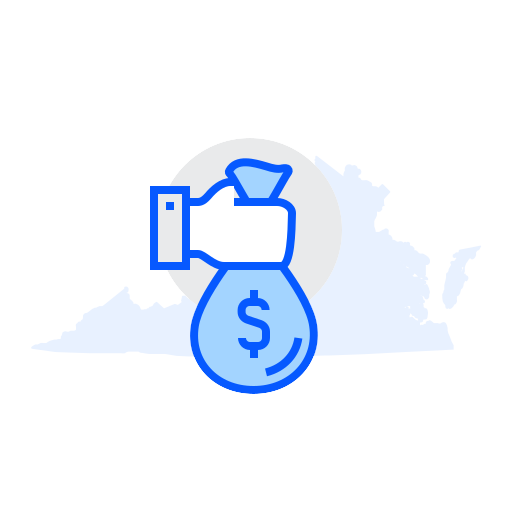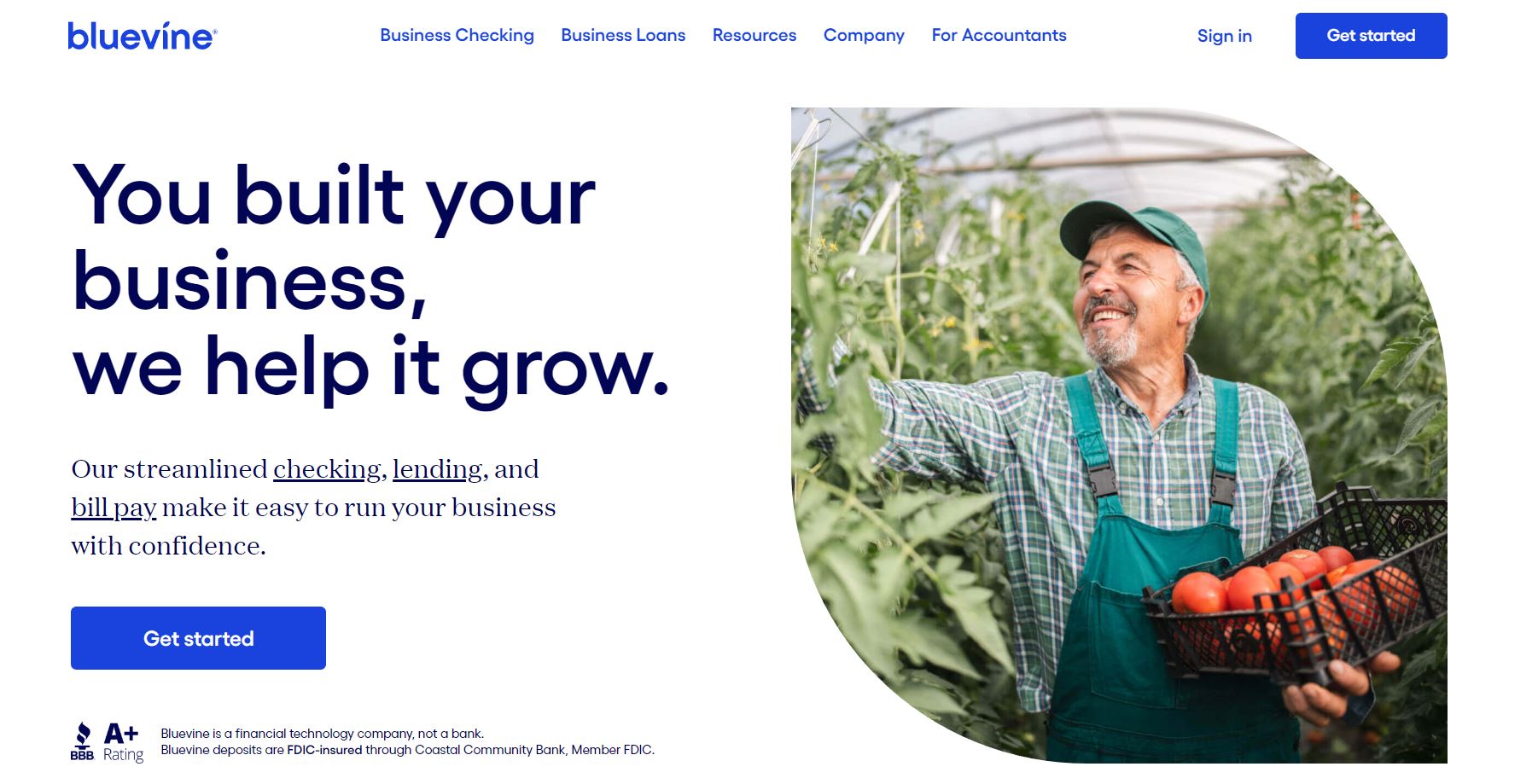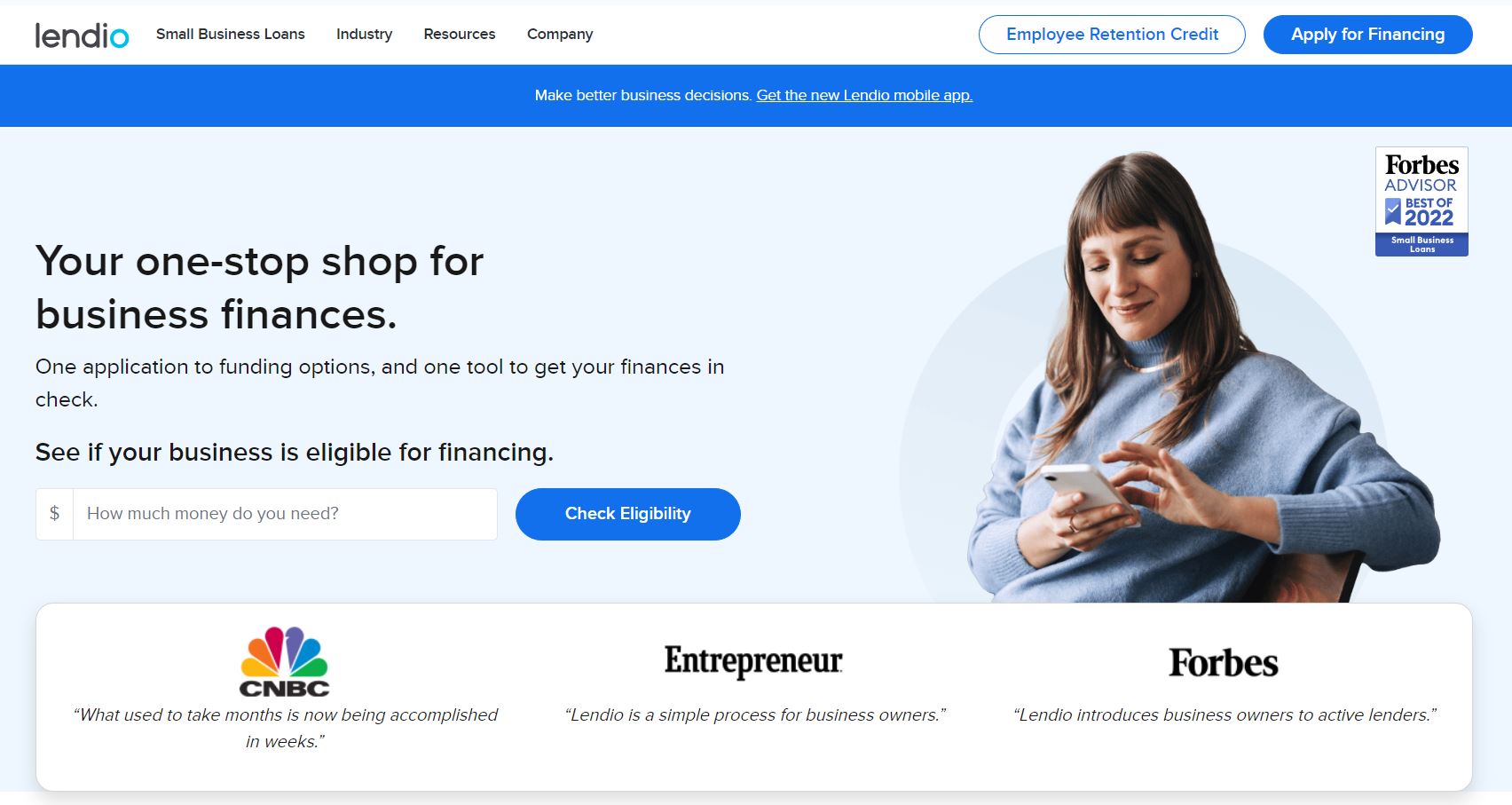
Best Small Business Loans in Virginia: If you’re looking to start an LLC in Virginia, you’ll probably need some financial assistance to get your business up and running. That’s where small business loans come in. With various lenders and loan options available, it can be overwhelming to determine the best fit for your LLC.
In this article, Webinarcare Editorial Team will explore some of the Best Small Business Loans in Virginia to help you make an informed decision and get your business off the ground. Whether you need funds to purchase equipment, hire staff, or cover operating expenses, these loans provide the financial support you need to succeed in your LLC.
On this page, you’ll learn about the following:
What is a Small Business Loan in Virginia?
Small business loans in Virginia are an essential resource for entrepreneurs looking to start or grow their businesses. Various lenders offer loans tailored to small businesses, including banks, credit unions, and online lenders. Many of these loans are backed by the Small Business Administration (SBA), making them easier to obtain for businesses that might not qualify for traditional bank loans. SBA loans typically have lower interest rates, longer repayment terms, and higher borrowing limits than other small business loans.
If you would like to start a business in Virginia, applying for a loan is a great option for your business.
Types of Small Business Loans
Loan terms, interest rates, and qualifications vary by lender, but here are the features you can expect to find with the different types of small-business loans in Virginia.
Traditional Bank Loans
One of the most common funding sources for small businesses is traditional bank loans. Many banks and credit unions in Virginia offer small business loans with competitive interest rates and terms. These loans can be used for various purposes, such as purchasing equipment, inventory, real estate, or working capital needs.
- Loan amounts: $10,000 to $1 million.
- Approximate APR range: 4.90% to 9.83%.
- Ideal for: Working money and business expansion.
Small Business Administration (SBA) Loans
The U.S. Small Business Administration (SBA) is a federal agency that provides support and resources to small businesses. One of the SBA’s primary functions is guaranteeing loans from banks and other lending institutions to small businesses. This guarantee reduces the risk for lenders and encourages them to provide loans to small businesses that might not otherwise qualify for financing.

Many participating lenders, including banks, credit unions, and other financial organizations, offer SBA loans throughout Virginia. SBA loans are available in various formats, including the well-known 7(a) loan program, which can be used for several things, including purchasing goods, real estate, or equipment.
- Loan amounts: $30,000 to $5 million.
- Approximate APR range: 10.25% to 12.75%.
- Ideal for: Significant one-time and long-term investments, buying property or equipment, taking over an existing company, and debt restructuring.
Business Term Loan
Internet lenders in Virginia currently provide up to $500,000 term loans. While the normal payback duration for a short-term loan is three to 18 months, in rare situations, the repayment period for a long-term loan might go up to ten years or longer. Virginia company owners can also receive funding for specialized products like inventory or equipment.
- Loan amounts: Up to $500,000.
- Approximate APR range: 6% to 99%.
- Ideal for: Substantial one-time investments
The Business Line of Credit
Access to flexible funds is made possible via a business line of credit. Virginia lenders provide you access to a certain amount of credit (let’s say $100,000), similar to a credit card, but you only pay something or accrue interest once you use the money.
- Credit line range: $1,000 to $250,000.
- Approximate APR range: 10% to 99%.
- Ideal for: Controlling financial flow, dealing with unforeseen costs, and funding momentary business requirements.
Equipment Financing
Asset-based finance, known as “equipment financing,” uses the actual equipment as security for the loan. Depending on the lender and your company’s criteria, you can obtain an equipment loan for up to 100% of the cost of the equipment you want to buy. You will then have to repay the loan over time with interest.
- Loan amounts: Up to 100% of the value of the equipment, plus soft costs.
- Approximate APR range: 4% to 30%.
- Ideal for: Purchasing tools and machines.
The Best Small Business Loan Providers in Virginia
Here are the top 5 small business loan providers in Virginia that will help you with your business.
1. Bluevine

As a leading bank in Virginia, Bluevine offers a variety of small business loan options, including traditional term loans, lines of credit, and SBA loans. With competitive interest rates and dedicated support for small business customers, Bluevine is an excellent option for entrepreneurs seeking financing in Virginia.

Pros 👍
- No setup, upkeep, upfront, or closing costs.
- Accepts applicants with as little as a six-month business history
- Accepts mediocre credit ratings (from the upper 500s to the mid-600s, depending on the credit-scoring model)
Cons 👎
- Same-day bank wire transactions include a $15 cost.
To qualify for a Bluevine line of credit, your business must be an LLC or Virginia S-corporation that has been in operation for at least 24 months (issued by Celtic Bank, a Utah-based financial institution). A credit score of at least 625 and a minimum monthly income of $40,000 are also required. To learn more about Bluvine, click the button to apply for their loans.
2. OnDeck

As a member-owned, not-for-profit financial institution, OnDeck supports small businesses in Virginia. They offer competitive rates on small business loans and lines of credit and provide personalized assistance throughout the application process.
OnDeck rewards its clients’ fidelity and thrift with prepayment and loyalty perks. If you sign a new contract, get a new loan, or pay off your current loan early, the company will waive its remaining interest.

Pros 👍
- Same-day funding without fees in several states
- No draw, opening, closure, or prepayment costs
- Rewards for staying loyal when you request a new loan and pay off 50% of your current one.
Cons 👎
- Only accessible in specific jurisdictions and for loans up to $100,000, same-day funding
- Needs a personal guarantee and a company lien.
To qualify for a short-term loan with OnDeck, you must have a minimum FICO score of 625, at least $100,000 in annual revenue, and have been in business for at least one year — a longer period of time than other lenders require. However, the company claims that its average customer has been in business for over three years, has an annual revenue of $300,000, and has a credit score of 650 or higher. You may want to explore Ondeck loans by clicking the button below.
3. Fundbox

Fundbox provides short-term loans, lines of credit, and merchant cash advances to small businesses in Virginia. Their flexible requirements and fast approval process make them attractive for businesses needing quick capital access or less-than-perfect credit.
Fundbox Insights forecasts cash flow for qualifying businesses based on transaction history. This feature forecasts future revenue and alerts when cash flow falls below a predefined threshold.

Pros 👍
- A three-day grace period on payments made on a line of credit
- There are no prepayment penalties or origination fees.
- There are no inactivity fees for credit lines.
Cons 👎
- Cash Flow Insights are in beta and unavailable to all businesses.
- Charges a draw fee for credit lines
- Funds will be available in two business days.
To be eligible for a loan or line of credit from Fundbox, your Virginia company must have used a compatible business bank account for at least three months before applying. You must also have been in business for at least six months, have a credit score of at least 600, and have annual revenue of at least $100,000. To learn more about Fundbox, click the button to apply for their loans.
4. Biz2credit

Biz2credit is an online business loan marketplace known for its BizAnalyzer tool. This tool gives business owners a scorecard based on their creditworthiness and financial health, personalized feedback, and financial recommendations.

Pros 👍
- Connects small businesses with bank and non-bank financing options.
- There are no application fees.
- Loan programs tailored to women, veterans, and minorities
Cons 👎
- Most bank financing products have an origination or closing fee.
- Charges an underwriting fee for the majority of non-bank financing products.
To qualify for a working capital loan through Biz2credit, you must have a minimum credit score of 575, be at least six months old, and have a minimum annual revenue of $250,000. For term loans, you’ll need the same minimum revenue but a credit score of at least 660 and at least 18 months in business. You may want to explore Biz2credit loans by clicking the button below.
5. Lendio

Lendio is one of the few marketplaces that provide startup loans with competitive interest rates and terms of up to 25 years.

Pros 👍
- Loans for startups of up to $750,000
- Compare more than 75 banks and online lenders.
- Up to $2 million for merchant cash advances and term loans
- Up to $5 million in other loan types and for company acquisitions
Cons 👎
- Prepayment fees vary depending on the lender.
- Several documents, including three months’ worth of business bank statements, are needed for the online application.
Lendio provides a wide selection of loan choices as a marketplace. The most important of these are startup loans, which not all lenders provide but are essential for starting a new company from scratch. Lendio offers startup loans of up to $750,000, durations of up to 25 years, and interest rates ranging from 0% to 17%. To learn more about Lendio, click the button to apply for their loans.
Webinarcare Editorial Team selects these Small Business Loans through thorough research and market study. You must cross-check all the factors before choosing the right one for your Virginia business.
Tips for Applying for a Small Business Loan in Virginia
Research Your Options: Before applying for a small business loan, it’s essential to research the various types of loans available and determine which one is best suited for your business’s needs. Consider interest rates, loan terms, and eligibility requirements when comparing loan options. It is a great idea to do research, especially if you have Short Term Property Rentals, Clothing Sales, Customized Tours, Information Technology, or even Printing Business. It will benefit your business if you dig into stuff first.
Prepare Your Financial Documents: Lenders will want to see various financial documents, such as bank statements, tax returns, and financial statements, to evaluate your business’s ability to repay the loan. Be prepared to provide these documents as part of your loan application.
Develop a Strong Business Plan: A well-prepared business plan can help demonstrate to lenders that your business has a clear path to success and a plan for using the loan proceeds effectively. Include detailed financial projections and thorough market analysis in your business plan.
Before that, if you are still wondering what business is good for you, you can form an LLC since it has limited liability protection or Virginia Corporation.
Build Your Credit: If you have a low credit score or limited credit history, improve your credit before applying for a small business loan. This may include paying down debts, establishing a history of on-time payments, or disputing any inaccuracies on your credit report.
Seek Professional Advice: Navigating the world of small business loans can be complex, and it’s essential to seek advice from professionals who can help guide you through the process. Consider consulting with a business advisor, accountant, or Virginia Business Attorney to help you prepare your loan application and ensure that you make the best business decisions. You can also seek advice from your Registered Agent since your Registered Agent does your paperwork and knows much about how to do this kind of business.
However, if you still don’t have a Registered Agent, you can find Virginia Registered Agent Services for your business.
How Do Loans For Small Businesses Operate?
With most small-business loans in Virginia, you take money from a lender and pay it back over a specified time period along with interest. Depending on the sort of business loan, the lender you’re working with, and your company’s qualifications, the maximum loan amounts, interest rates, and repayment terms may change.
How Much Money Do You Need To Borrow For Your Business?
For business loans and lines of credit, many lenders impose minimum annual revenue requirements ranging from $50,000 to $250,000 in Virginia. Consider checking out business credit cards or SBA microloans if your revenue needs to be higher to apply for those loan products. It is still better to consult with Virginia CPA for your business.
How Does a Novice Obtain a Company Loan?
To be eligible for a small business loan at a bank, you must have good personal credit, strong business finances, at least one year in business, and in some instances, collateral if you have never received a business loan before. Less demanding criteria apply to online lenders. Consider alternatives like business credit cards if you’re beginning out.
FAQs
Also Read
- Best Alabama Small Business Loans
- Best Alaska Small Business Loans
- Best Arizona Small Business Loans
- Best Arkansas Small Business Loans
- Best California Small Business Loans
- Best Colorado Small Business Loans
- Best Connecticut Small Business Loans
- Best DC Small Business Loans
- Best Delaware Small Business Loans
- Best Florida Small Business Loans
- Best Georgia Small Business Loans
- Best Hawaii Small Business Loans
- Best Idaho Small Business Loans
- Best Illinois Small Business Loans
- Best Indiana Small Business Loans
- Best Iowa Small Business Loans
- Best Kansas Small Business Loans
- Best Kentucky Small Business Loans
- Best Louisiana Small Business Loans
- Best Maine Small Business Loans
- Best Maryland Small Business Loans
- Best Massachusetts Small Business Loans
- Best Michigan Small Business Loans
- Best Minnesota Small Business Loans
- Best Mississippi Small Business Loans
- Best Missouri Small Business Loans
- Best Montana Small Business Loans
- Best Nebraska Small Business Loans
- Best Nevada Small Business Loans
- Best New Hampshire Small Business Loans
- Best New Jersey Small Business Loans
- Best New Mexico Small Business Loans
- Best New York Small Business Loans
- Best North Carolina Small Business Loans
- Best North Dakota Small Business Loans
- Best Ohio Small Business Loans
- Best Oklahoma Small Business Loans
- Best Oregon Small Business Loans
- Best Pennsylvania Small Business Loans
- Best Rhode Island Small Business Loans
- Best South Carolina Small Business Loans
- Best South Dakota Small Business Loans
- Best Tennessee Small Business Loans
- Best Texas Small Business Loans
- Best Utah Small Business Loans
- Best Vermont Small Business Loans
- Best Virginia Small Business Loans
- Best Washington Small Business Loans
- Best West Virginia Small Business Loans
- Best Wisconsin Small Business Loans
- Best Wyoming Small Business Loans
Conclusion
Finding the best small business loan in Virginia can be a critical step in starting or growing your Virginia business. By understanding the various types of loans available, meeting the necessary qualifications, and preparing a strong application, you’ll be well on your way to obtaining the funding you need to achieve your business goals. So, research your options, prepare your documents, and take the next step toward making your entrepreneurial dreams a reality in Virginia.